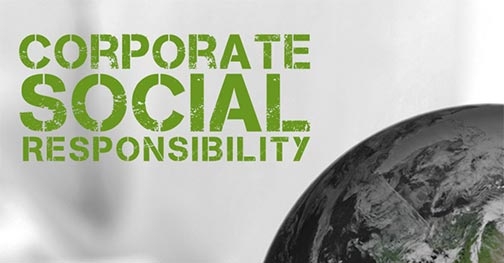Most definitions of Corporate Social Responsibility (CSR) have focused on actions related to managing the relationship with stakeholders; however, more recently the concept has evolved to include a deeper approach, which recognizes CSR and sustainability as a core part of the business model and strategy.
Furthermore, not only business organizations have the duty to act responsibily. Any organization has an impact on its social and natural environment while conducting its activity, and incorporating social responsibility means to do the best in order to make these impacts (intended or unintended) as positive as possible, and reduce or compensate the negative ones.
The ERASMUS+ funded project ENGAGE is focused on providing practial tools and training contents that support organizations while implementing their CSR strategies. It is leaded by the Chamber of Commerce of Kocaeli city (KOTO), in Turkey. Other partners are FCPiT (Spain); BEST (austria); CREFOP (Romania); MYCCB (Bulgaria); and GOI (Turkey).
In order to help organizations in their implementation of CSR policies, the ENGAGE project have developed 4 main outputs:
- Benchmarking Compendium report: the report contains up to 30 examples of CSR related best practices from organizations in the UE and Turkey, and interviews with CSR-related relevant persons in the business, training and social fields in each participant country. Main developments in CSR are also presented, both internationally and in each country.
- Self-assessment Tool (SAT) and Handbook: The SAT is conceived as an internal mechanism to analyze and improve the self CSR strategy, and it is supported by a Methodological Handbook. Based on an exhaustive questionnaire that assesses the degree of implementation of CSR actions in different strategic moments – diagnosis, planning, execution and checking-, the tool offers a brief personalized report underlining the strong points and the aspects needing improvements for each organization.
- 3 ENGAGE CSR - “Kits”: Training kits devoted to employers, managers, and stakeholders of 3 different kinds of organizations: business, training and social entities, respectively. The content is structured in the 10 topics at the basis of the ENGAGE methodology: Ethics and transparency; Human Rights; Dialogue with Stakeholders; Value creation; Human Resources; Diversity and Equity; Environment; Community development; Social responsible Marketing; and Good Governance.
- ENGAGE Integrative Guidelines for boosting CSR: The lessons learned through the development of the project, and the main aspects to be highlighted, can be found in the Integrative Guideliness.
All results are delivered as open-source resources available on-line from engage4csr
